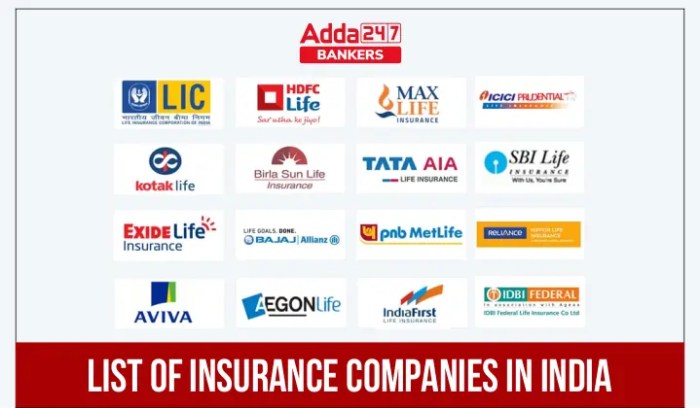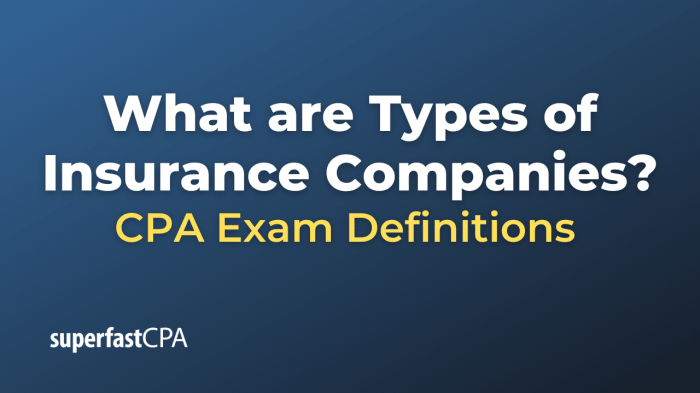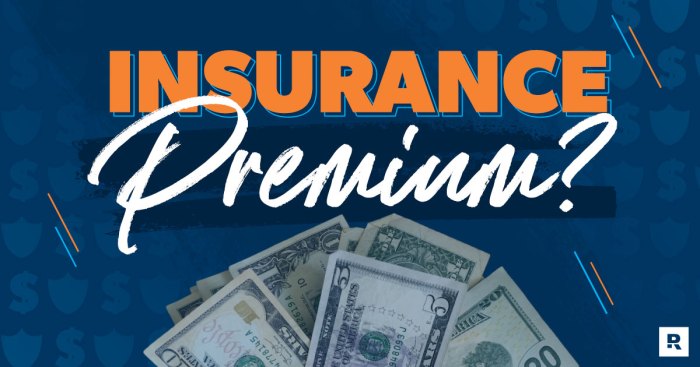The name of an insurance company is more than just a title; it’s the foundation of its brand identity. For premium insurance companies targeting high-net-worth individuals, the name must project an image of trust, security, and exclusivity. This exploration delves into the art of crafting a name that not only attracts but also resonates with a discerning clientele, considering factors from name structure and target audience to legal considerations and visual branding.
We will examine how word choice, structural elements, and overall brand messaging contribute to creating a name that embodies prestige and reliability. We’ll also cover practical aspects such as trademark availability and the importance of consistent visual representation across all marketing channels. By the end, you’ll have a clearer understanding of the strategic considerations involved in naming a premium insurance company.
Defining “Premium” in Insurance Company Names
Crafting a name for a premium insurance company requires careful consideration of the brand image you wish to project. The term “premium” signifies more than just a high price point; it represents a commitment to superior service, exclusive benefits, and a level of sophistication that resonates with a discerning clientele. This section will explore how to effectively convey this meaning through strategic word choice and name construction.
The word “premium” itself implies a level of excellence above the standard. It suggests exclusivity, high quality, and a commitment to exceeding expectations. However, simply using the word “premium” in the company name may not be enough. To truly capture the essence of a premium insurance offering, the name needs to evoke a sense of prestige, security, and unwavering reliability.
Words and Phrases Conveying Prestige and Exclusivity
Several words and phrases can effectively communicate the premium nature of an insurance company. These should be carefully selected to align with the target audience and the overall brand identity. The goal is to create a name that is memorable, sophisticated, and instantly communicates the value proposition.
- Words suggesting wealth and affluence: Summit, Zenith, Legacy, Pinnacle, Sovereign
- Words implying security and protection: Guardian, Fortress, Shield, Bastion, Haven
- Words emphasizing expertise and trust: Vanguard, Apex, Prestige, Elite, Cardinal
- Phrases incorporating location or heritage: [City Name] Assurance, The [Region] Underwriters (e.g., The London Underwriters)
Adjectives Describing a Premium Insurance Company
Choosing the right adjectives is crucial in painting a vivid picture of the company’s attributes. These adjectives should consistently reinforce the premium positioning and target the desired customer profile.
- Exceptional
- Unrivaled
- Exclusive
- Sophisticated
- Reliable
- Prestigious
- Secure
- Discreet
- Personalized
- High-net-worth focused
Examples of Adjective Use in Premium Insurance Company Names
This table illustrates how different adjectives can be incorporated into company names, along with their connotations and target audiences.
| Adjective | Connotation | Example Name Incorporation | Target Audience |
|---|---|---|---|
| Exclusive | Limited access, high value | Exclusive Risk Management | High-net-worth individuals, corporations |
| Sovereign | Supreme authority, ultimate protection | Sovereign Insurance Group | Affluent clients seeking unparalleled security |
| Vanguard | Leading edge, innovative | Vanguard Risk Solutions | Tech-savvy individuals and businesses |
| Legacy | Enduring value, long-term security | Legacy Financial Protection | Families seeking generational wealth protection |
Name Structure and Branding

Choosing the right name for a premium insurance company is crucial for establishing a strong brand identity and attracting high-net-worth clients. The name should convey trustworthiness, sophistication, and the promise of superior service, all while being memorable and easily recognizable. Careful consideration of name structure, length, and the overall brand message is paramount.
The structure of a company name significantly impacts its perception and memorability. Different structures evoke distinct feelings and associations.
Name Structure Types and Examples
Three primary name structures are commonly used: descriptive, abstract, and compound. Descriptive names directly indicate the company’s function or offering. Abstract names are more creative and evocative, relying on imagery and suggestion rather than literal description. Compound names combine elements of both descriptive and abstract approaches.
- Descriptive: These names clearly communicate the company’s services. Examples include “National Security Insurance,” “Premier Family Protection,” or “Global Risk Management.” The intended brand image is straightforward, reliable, and transparent.
- Abstract: These names use evocative words or imagery to create a sense of prestige and sophistication. Examples might be “Apex Assurance,” “Zenith Shield,” or “Veridian Underwriting.” The intended brand image is modern, sophisticated, and potentially aspirational.
- Compound: These names blend descriptive and abstract elements to achieve a balance between clarity and creativity. Examples include “Guardian Peak Insurance,” “Legacy Shield Financial,” or “Summit Risk Solutions.” The intended brand image is a blend of security and forward-thinking innovation.
Impact of Name Length on Memorability and Brand Perception
Shorter names are generally easier to remember and pronounce, leading to increased brand recall. However, overly short names may lack the gravitas associated with premium insurance. Longer names, while potentially more descriptive, can be difficult to remember and may sound less sophisticated. The ideal name length strikes a balance between memorability and conveying the company’s prestige. For example, “Shield” is short and memorable, but “National Security Insurance Group of America” might be considered too long. A name like “Apex Assurance Group” offers a good balance.
Reliability versus Innovation in Company Names
Names emphasizing reliability often use words associated with security, protection, and stability, such as “Guardian,” “Fortress,” or “Secure.” These names project an image of trustworthiness and dependability. In contrast, names highlighting innovation may incorporate words suggesting progress, advancement, and cutting-edge technology, such as “Vanguard,” “Horizon,” or “Apex.” These names aim to attract clients seeking modern and forward-thinking solutions. The choice depends on the company’s strategic positioning and target market.
Example Company Names by Structure
Below are three examples for each name structure, along with the intended brand image:
- Descriptive:
- Reliable Asset Protection: Conveys a sense of security and stability.
- Global Elite Insurance: Suggests exclusivity and worldwide coverage.
- Premier Wealth Management Insurance: Targets high-net-worth individuals.
- Abstract:
- Zenith Risk Solutions: Evokes a feeling of peak performance and problem-solving.
- Astral Security: Creates a sense of vastness and comprehensive protection.
- Vanguard Underwriting: Suggests leadership and innovation.
- Compound:
- Guardian Pinnacle Insurance: Combines the security of “Guardian” with the prestige of “Pinnacle.”
- Summit Risk Partners: Implies reaching the highest level of risk management.
- Legacy Shield Financial: Blends the idea of enduring protection with financial expertise.
Legal and Availability Considerations

Choosing a name for your premium insurance company requires more than just finding something catchy; it necessitates a thorough legal vetting process to ensure smooth operation and avoid costly disputes. Ignoring this crucial step can lead to significant financial and reputational damage. This section Artikels the importance of trademark searches and the potential legal ramifications of name similarity.
Before settling on a name, it is paramount to conduct a comprehensive trademark search. This involves checking if the name, or a similar one, is already registered with relevant intellectual property offices. Using a name that infringes on an existing trademark can result in legal action, including injunctions preventing your company from using the name, substantial financial penalties, and damage to your brand’s credibility. The cost of defending a trademark infringement lawsuit far outweighs the cost of conducting a thorough search beforehand.
Trademark Availability Checks
A trademark search determines whether a proposed name is already in use by another entity for similar goods or services. This prevents conflicts and protects your brand identity. A successful trademark search confirms the availability of the name for registration and use. Failure to perform a thorough search leaves your company vulnerable to legal challenges.
Legal Implications of Similar Names
Using a name confusingly similar to an established company’s name can lead to various legal issues. This includes claims of trademark infringement, unfair competition, and dilution. Even minor variations in spelling or wording can be problematic if they create a likelihood of consumer confusion. For example, using a name like “PremiumGuard Insurance” when “PremiumGuard Financial” already exists could lead to a lawsuit alleging that consumers might mistakenly believe the two companies are related or affiliated. The legal outcome depends on factors such as the similarity of the marks, the relatedness of the goods or services, and the strength of the existing trademark.
Resources for Trademark Searches
Several resources facilitate trademark searches. The United States Patent and Trademark Office (USPTO) website (uspto.gov) provides a comprehensive database of registered trademarks. Similar databases exist in other countries. Additionally, private companies offer trademark search services, providing more comprehensive searches than a simple online database search. These services often include legal analysis of the search results, providing valuable insights into potential risks. It is prudent to utilize both free government resources and paid professional services for a robust search.
Preliminary Name Check Examples
Let’s consider some hypothetical examples to illustrate the importance of preliminary name checks. Suppose you’re considering the name “Apex Insurance.” A preliminary search reveals a registered trademark for “Apex Financial Group,” offering similar services. This raises a red flag; even though the words are not identical, the similarity could cause confusion. A more thorough investigation is warranted. Alternatively, if your preliminary search for “Guardian Shield Insurance” reveals no conflicting marks, this name appears more legally sound at this initial stage. However, a comprehensive professional search is still highly recommended before finalizing the name.
Conclusive Thoughts

Creating a successful name for a premium insurance company requires a thoughtful and strategic approach. From meticulously selecting words that convey prestige to ensuring legal compliance and maintaining brand consistency, every element plays a vital role in shaping the company’s perception and market success. By understanding the nuances of target audience, name structure, and visual branding, insurance providers can craft a name that not only attracts but also retains high-net-worth clients, establishing a lasting legacy of trust and excellence.
Questions Often Asked
What are some common pitfalls to avoid when naming a premium insurance company?
Common pitfalls include choosing a name that’s too generic, difficult to pronounce or remember, or already trademarked. Failing to consider the target audience and neglecting the visual branding aspects can also hinder success.
How important is the domain name registration in the process of naming a premium insurance company?
Securing a relevant domain name is crucial. It strengthens brand identity and online presence. Ideally, the domain name should match or closely align with the company name for seamless brand recognition.
What is the role of market research in selecting a premium insurance company name?
Market research helps identify the preferences and expectations of the target audience. It informs the choice of name, ensuring resonance and relevance. This research might involve surveys, focus groups, or competitive analysis.